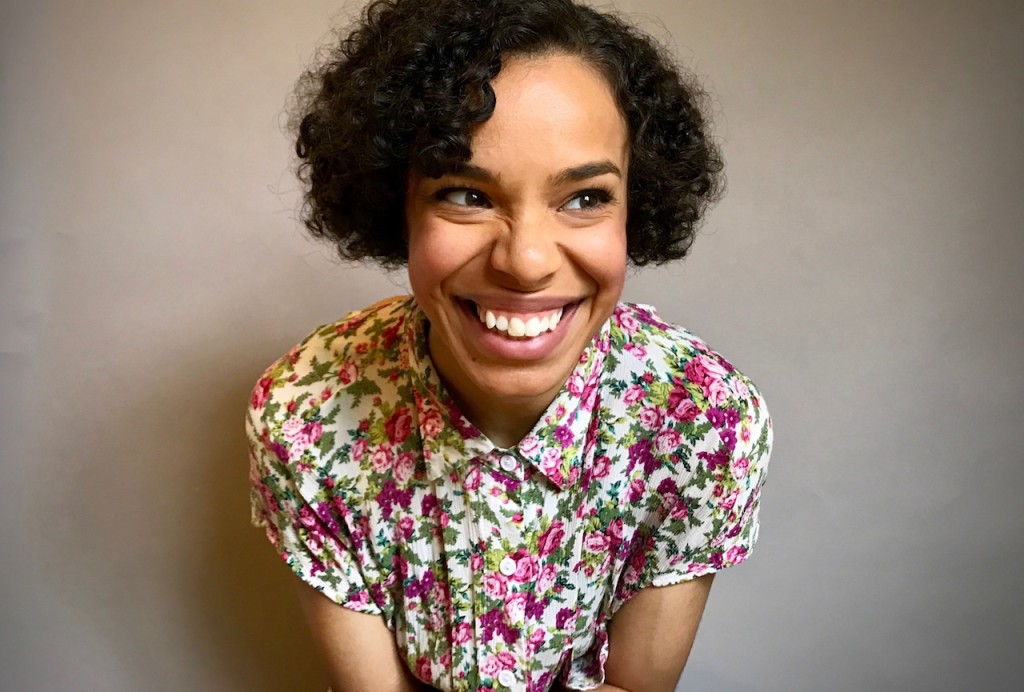We are in the middle of summer here in New York City, which means theater festivals have taken over the city and talent is blossoming on every corner as we speak. In the years since I started working in the theater industry, I have seen my fair share of ups and downs and let me tell you, we are on a very big up at the moment. Strong playwrights are putting new work everyday, and with a lot of theaters working on diversifying, more are being discovered each day. With new perspectives going up on stage and new styles meshing, we shouldn’t forget one of the main people to work on this production and make the magic happen. Of course I’m talking about the grandmaster themselves: THE DIRECTOR!
And while there’s a vast number of male directors out there doing great work, I’ve noticed that most of my favorite works in the past few years have been directed by women. Then I noticed that the majority of the plays that have become critical darlings have also been directed by women. For an industry so set in traditionalist ideas and that sadly still have a patriarchal stench when it comes to playwrights, the women have stake their claims in the captain’s chair and made the future of directing undeniably theirs!

Taylor Reynolds is not only a woman creating fantastic work and breaking old stereotypes, but she is also creating a space for others to have a voice. As one of the Producing Artistic Leaders of The Movement Theatre Company, she provides a forum for artists of color to share their work. I saw Taylor’s work last year on “Things I Don’t Want to Talk About” by playwright Gina Femia, and her work cuts as deep as it enlightens.
-
Of all the things in this industry, why directing? And do you dabble in other aspects of it?
- Like many young artists, I actually started out as a performer in high school. My theatre program was really collaborative, with kind of an “everyone does everything” setup, so I think that gave me a knack for keeping track of a production as a whole. My theatre teacher actually had to constantly remind me to just focus on my character when I would perform because I was that terrible actor who would give other people unsolicited notes and make comments about what the costumes should look like! When I realized that directing was about guiding the entire production and guiding each person (whether actor, designer, crew person, etc.) towards the same vision, I knew that it was for me. I don’t perform anymore (unless I’m at karaoke), so now I focus on my role as a producer at my company, The Movement Theatre Company. I’ve also focused more on devised work that involves writing text in recent years, so now I’m currently trying to figure out what the word for that is. Playwright? Writer/Deviser? I’ll keep you updated.
- How long have you been part of the NYC theater scene and how do you feel about it?
- I’ve lived in New York for almost six years and I’ve thankfully been working as a director/theatre-maker in some capacity the entire time. To be honest, my experience in the New York theatre scene is probably very skewed. I’ve been really fortunate because the majority of my experiences directing, assisting, and collaborating have been in rooms with people who identify as women, people of color, or part of the LGBTQ+ community — often all three! However, when I step outside of my perfect bubble of intersectionality, I still see theatres taking more from young artists than they give. I still see predominantly white theatres using diversity as a tagline rather than an initiative. I still see ticket prices going up, essentially shutting out large parts of the community who will no longer be able to afford to see a show. But! Progress is happening. So essentially I feel like the New York theatre scene has a lot of work to do, but I’m hopeful that it’s changing for the better.
- As a woman in a position of power, have you ever dealt directly with discrimination from those you worked with? And does it discourage or fuel your drive?
- Like I said, I’ve been really fortunate to work in spaces with other “marginalized” people, so I haven’t experienced much direct discrimination as a woman director of color. However, I definitely have had experiences where people (especially older white men) have challenged my authority in subtle ways, either by phrasing their critique as a suggestion or pulling me to the side and asking if I was sure about the direction or note I gave. These instances absolutely fuel me! Because it doesn’t happen to me very often, I kind of revel in the learning experience. It also gives me absolute pleasure to remind someone that I know what I’m doing in that rehearsal room. If I need help, I will ask for it. If I don’t ask, don’t give me “advice.”
- I see you focus on the exploration of race, gender and identity; could you tell us more about your work on these themes and what you hope to accomplish by bringing these to audiences in the new american landscape?
- Most of the pieces I’ve developed have been new works, largely because the stories I’m interested in seeing onstage involve contemporary characters of color and varying gender and sexual identities. Often these stories either haven’t been written/created yet or there aren’t enough of them, so I work to develop them with artists and collaborators who are interested in making them. I love when I see a show that has a character or characters who are from a “marginalized” background–whether it’s race, gender, sexuality, economic status, whatever–and the story doesn’t rely on stereotype to drive the action. With my work, I aim to present complex, incomplete representations of social justice-oriented issues that characters of all backgrounds are working through. I say they’re incomplete representations because I’m interested in issues that are still raw, still being figured out. My goal for the new American landscape is to help audiences understand that theatre is entertaining and challenging. It can make you laugh and then make you feel uncomfortable for laughing. It can make you question everything that’s happening onstage while keeping you fully engaged and enthralled. And that’s totally okay. (Also that people of color can be in sy-fy stories. Like, regular brown people will still exist in the future.)
- Tell us about your work with The Movement Theatre Company.
- I’m one of the four Producing Artistic Leaders of The Movement; our title basically means that we do everything that needs to be done in order to make our season happen! Our mission is to create an artistic social movement by developing and producing new work by artists of color, engaging audiences in a rich theatrical dialogue, enlightening communities to the important issues affecting our world, and empowering artists to celebrate the many sides of their unique voice. We provide an experimental, low stakes space for artists of color to bring complex, messy, unfinished ideas into a room and turn them into full-bodied, poignant works. We also provide a space for uptown artists to produce less-traditional work uptown! No need to go to the East Village or Bushwick, come to Harlem! Though for our next mainstage production, And She Would Stand Like This, from July 20th – August 6th, we’re venturing towards Midtown at the ART/New York Theatres in the Mezzanine Theatre.
- You seem to have worked all over the country. What would you say is the main difference, if any, about working in New York.
- One of my secret five-year goals is to freelance direct outside of New York at least five times a year, so I’m glad it seems like I’m heading towards that life! In my experience, the biggest difference is that in New York, people are always working. Like, always. And that’s not to say that I haven’t received hoards of emails at 11pm while I was working in other places, but it just seems like everyone who works in theatre in New York is sending emails and holding meetings whether it’s 11am at the office or 11pm at the bar. I think other places have the ability to say “Okay, time to stop looking at my emails.” Unless you’re in tech. Then all bets are off!
- What are your aspirations and goals for later in your career?
- Well, as I said before, one goal is to work out of town more. I like New York, but I will take pretty much any opportunity to leave the city if I can. My main goal is to continue to build The Movement with my team so that we can provide more space (metaphorically and physically) for artists of color to explore what the word “artist” really means to them. For my personal career, I plan to continue supporting and developing new plays by emerging and established playwrights that have nuanced and complex characters of underrepresented backgrounds and histories. I’m also dreaming up ways to get theatres/productions to work towards more inclusive representation both on and off stage.
- What are you working on next?
- Again, The Movement will present And She Would Stand Like This at the ART/New York Theatres in the Mezzanine Theatre from July 20th-August 6th (tickets are now on sale at andshewould.bpt.me)! It’s the first time I’ve produced a full production since I’ve been with the company, so I’m very excited and nervous! Speaking of excited and nervous, I’m directing a devised piece called Think Before You Holla that will go up at the DC Capital Fringe at Joe’s Movement Emporium July 15th-23rd. Generated from true stories via interviews and social media, Think Before You Holla is a devised movement and monologue piece that examines the patriarchal roots of gender-based street harassment and its overall influence on women’s psyches (tickets are here). July is a very busy month! And then I also have a few exciting opportunities in the Fall that I can’t publicly talk about yet!
- Sadly, today there are these sections of people that still believe in a patriarchy run industry. What kind of advice would you give those women thinking of directing but feel discouraged because of the idea that it is a man’s world?
- There’s a quote from Ruth Bader Ginsberg that I love: ”People ask me sometimes, ‘When do you think it will be enough? When will there be enough women on the court?’ And my answer is when there are nine.” I feel similarly about directing. If women are feeling discouraged, I would encourage them to remember that when every nominee in the “Best Director” category is a woman, the struggle will have been worth it. Remember that when you walk into a room, the women in that room are on your side (or at least most of them are). If there are no women in the room, put women in the room. Understand that you can say the words “I don’t know” to anyone and that is totally okay. Understand that it is okay to say no to projects or situations where you don’t feel respected. Remember that you can take up just as much space as all the old white men who think they know what “diversity” looks like. Directing is a lonely job, so store up your strength. Finally, I take solace in another quote I love (I sadly don’t know the source): “Live your life with the confidence of a mediocre white man.” That’s pretty much what gets me through the day.
- Favorite work and most inspiring figure?
- I’m a big fan of nearly anything by Suzan-Lori Parks, Annie Baker, and Chekhov (what a group, right?). I’m currently most inspired by anyone who is using their voice to speak out against injustice in this political climate.
Be sure to follow Taylor’s journey here and keep yourself looped into what The Movement Theatre Company is up to!








